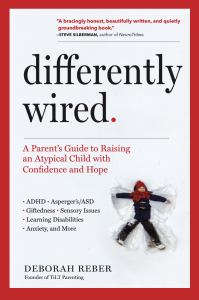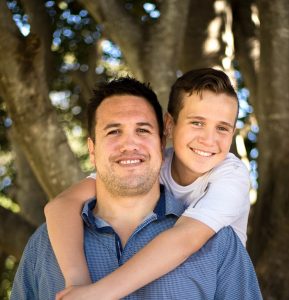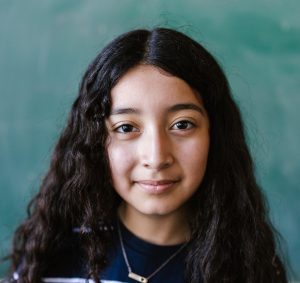How to Boost Executive Function in Teens [video]
 When adults support development of teens’ executive function skills during the critical years of adolescence, it can have a lifelong impact. Read more »
When adults support development of teens’ executive function skills during the critical years of adolescence, it can have a lifelong impact. Read more »
 When adults support development of teens’ executive function skills during the critical years of adolescence, it can have a lifelong impact. Read more »
When adults support development of teens’ executive function skills during the critical years of adolescence, it can have a lifelong impact. Read more »
 Executive functioning issues don’t go away after high school. They’ll continue to have an impact on your child, whether she’s in college or trade school, on the job or navigating everyday situations. Helping your child learn to manage challenges doesn’t mean you’re letting her off the hook. Your support can help her refine skills as she enters a new phase of life. Read more »
Executive functioning issues don’t go away after high school. They’ll continue to have an impact on your child, whether she’s in college or trade school, on the job or navigating everyday situations. Helping your child learn to manage challenges doesn’t mean you’re letting her off the hook. Your support can help her refine skills as she enters a new phase of life. Read more »
 Executive function needs become more complex among high school students as their life roles evolve. Too often, chaos results as they use self-management approaches they have outgrown, like keeping track of their assignments in their heads. Read more »
Executive function needs become more complex among high school students as their life roles evolve. Too often, chaos results as they use self-management approaches they have outgrown, like keeping track of their assignments in their heads. Read more »

In a letter to the EBC community, Head of Esther B. Clark Schools Jody Miller, Ed.D., BCBA honors Martin Luther King, Jr.’s influence and contributions.
Read more »

 Parenting is never easy, but raising a child with exceptional talents who also struggles with learning differences (such as autism, ADHD or dyslexia) is even more complex. In this Voices of Compassion episode, we talk with Callie Turk, a parent of a 2e child and Dr. Vivien Keil, neuropsychologist, about the journey of understanding and parenting these unique and extraordinary kids. Read more »
Parenting is never easy, but raising a child with exceptional talents who also struggles with learning differences (such as autism, ADHD or dyslexia) is even more complex. In this Voices of Compassion episode, we talk with Callie Turk, a parent of a 2e child and Dr. Vivien Keil, neuropsychologist, about the journey of understanding and parenting these unique and extraordinary kids. Read more »
 Today millions of kids are stuck in a world that doesn’t respect, support, or embrace who they really are—these are what Deborah Reber is calling the “differently wired” kids, the one in five children with ADHD, dyslexia, Asperger’s, giftedness, anxiety, sensory processing disorder, and other neurodifferences. Read more »
Today millions of kids are stuck in a world that doesn’t respect, support, or embrace who they really are—these are what Deborah Reber is calling the “differently wired” kids, the one in five children with ADHD, dyslexia, Asperger’s, giftedness, anxiety, sensory processing disorder, and other neurodifferences. Read more »
 When Kodi Lee appeared on America’s Got Talent, he did so with the help of a cane and his mother. Walking to center stage and speaking took immense effort. After Lee introduced himself, his mother explained that he is blind and autistic. He’s also a talented musician, making him a prominent example of someone who is twice-exceptional, or 2e – terms used to describe people who are intellectually or artistically gifted and have at least one disability. Read more »
When Kodi Lee appeared on America’s Got Talent, he did so with the help of a cane and his mother. Walking to center stage and speaking took immense effort. After Lee introduced himself, his mother explained that he is blind and autistic. He’s also a talented musician, making him a prominent example of someone who is twice-exceptional, or 2e – terms used to describe people who are intellectually or artistically gifted and have at least one disability. Read more »
 Twice-exceptional children — those who are gifted and have a learning disability or neurological disorder like ADHD — often struggle with issues related to social-emotional growth and/or regulation. As a result, many of these students battle anxiety, stress, emotional regulation, social anxiety, and executive dysfunction. Read more »
Twice-exceptional children — those who are gifted and have a learning disability or neurological disorder like ADHD — often struggle with issues related to social-emotional growth and/or regulation. As a result, many of these students battle anxiety, stress, emotional regulation, social anxiety, and executive dysfunction. Read more »

ADHD expert Sharon Saline answers ADDitude Magazine readers’ questions about gifted children and adults who have ADHD — and struggle with the misconceptions surrounding both. Read more »
 Schools across the country are overwhelmed with K-12 students struggling with mental health problems, according to school staff, pediatricians and mental health care workers. Not only has this surge made the return to classrooms more challenging to educators, it’s also taxing an already strained health-care system. Read more »
Schools across the country are overwhelmed with K-12 students struggling with mental health problems, according to school staff, pediatricians and mental health care workers. Not only has this surge made the return to classrooms more challenging to educators, it’s also taxing an already strained health-care system. Read more »